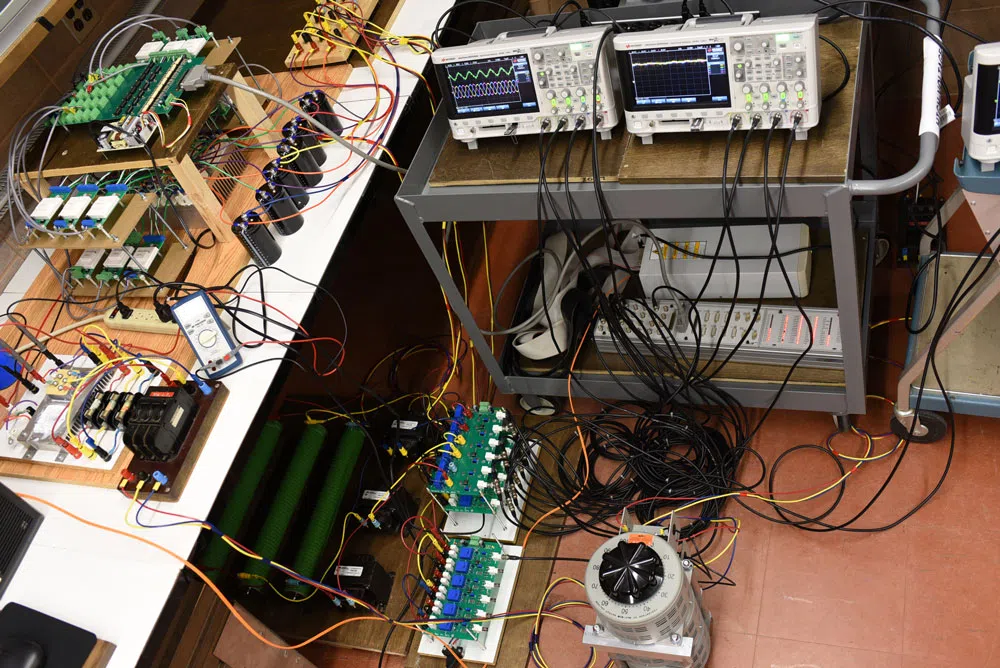
Research being conducted by the Department of Electrical and Computer Engineering with Dr Apparao Dekka - (Supplied via Lakehead University)
Lakehead University is receiving some funding to support some new research projects.
The Ontario Research Fund’s Research Infrastructure Program is investing a total of over $800,000 in six projects.
Dr. Gautam Das, a Professor in the Department of Physics, has been awarded $166,892 to enhance Lakehead’s photonics and bio-photonics research facilities.
The project is focused on developing devices that will help with the early detection of cervical cancer and SARS-COV-2 (the virus that causes COVID-19), as well as an analyzer for greenhouse gases emitted from farmers’ fields.
“This funding enables us to expand the scope of our research and develop accessible, cost-effective solutions for both medical diagnostics and environmental challenges,” said Dr. Das.
Dr. Apparao Dekka with the Department of Electrical and Computer Engineering, is receiving $100,017 to support his research on the design and development of powertrain technologies for heavy-duty electric vehicles.
The project’s goal is to address the high cost of electric vehicle production by creating energy-efficient and affordable solutions.
The research also focuses on training personnel to support future growth in this sector.
“Electric vehicles are critical in combating climate change, and this project is a step toward making them more accessible to Canadians,” said Dr. Dekka. “By developing cost-effective technologies, we hope to encourage wider adoption of electric vehicles and foster a more sustainable economy.”
The Department of Chemical Engineering is being awarded $124,986 to establish a Laboratory for Climate Change Mitigation and Air Pollution Control.
The facility will lead two research programs.
The projects led by Dr. Ebrahim Rezae will support the reduction of greenhouse gas emissions and improve air quality while training students in environmental technologies.
“The infrastructure funded through the ORF will allow us to address critical challenges in energy sustainability and air quality,” said Dr. Rezaei. “This research will not only reduce Canada’s atmospheric emissions but also enhance our country’s economic growth and technological leadership.”




